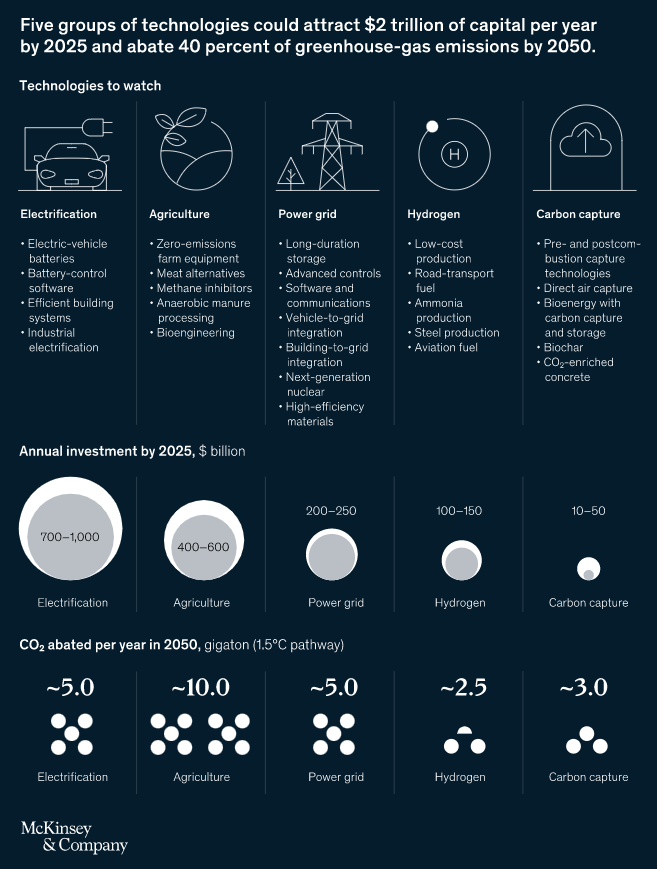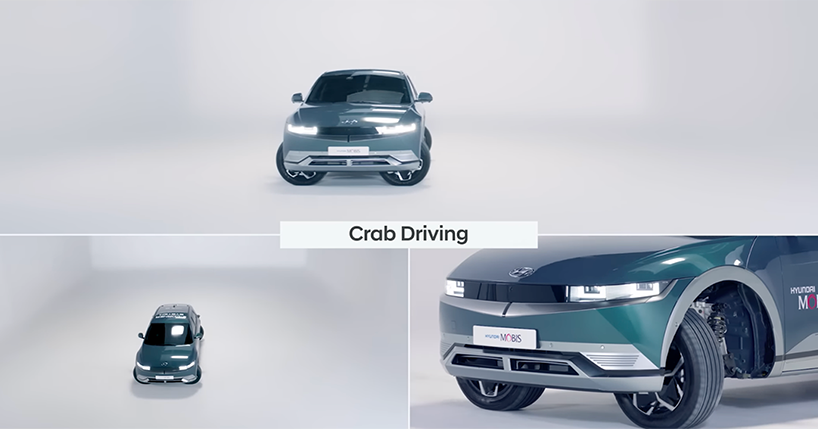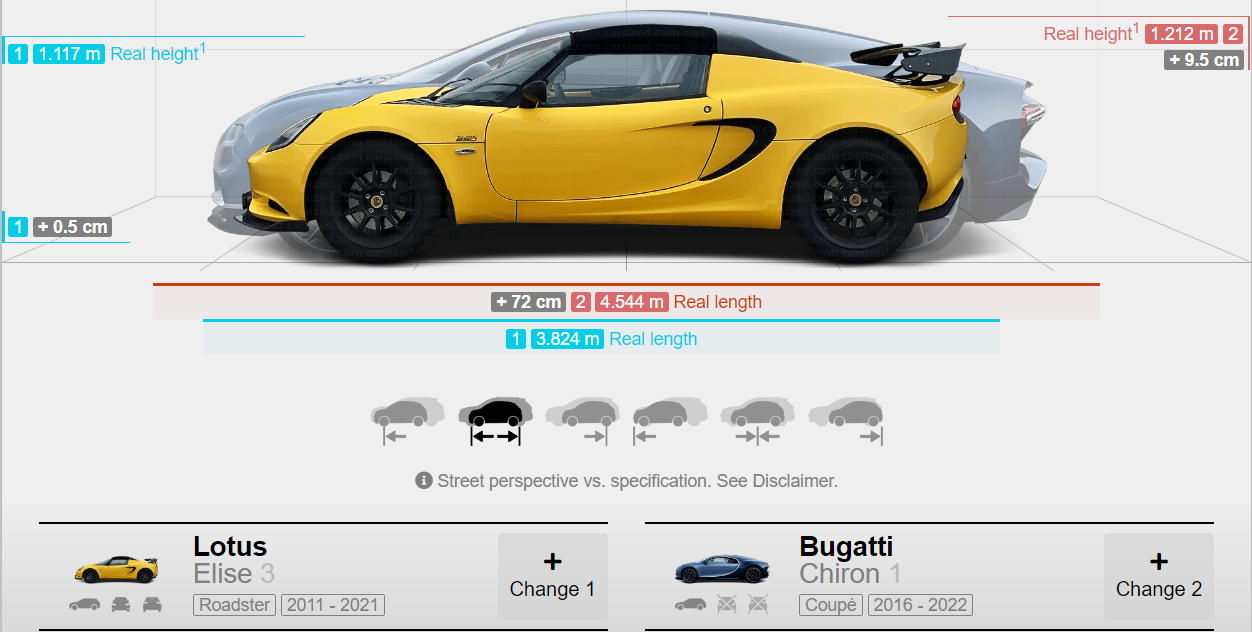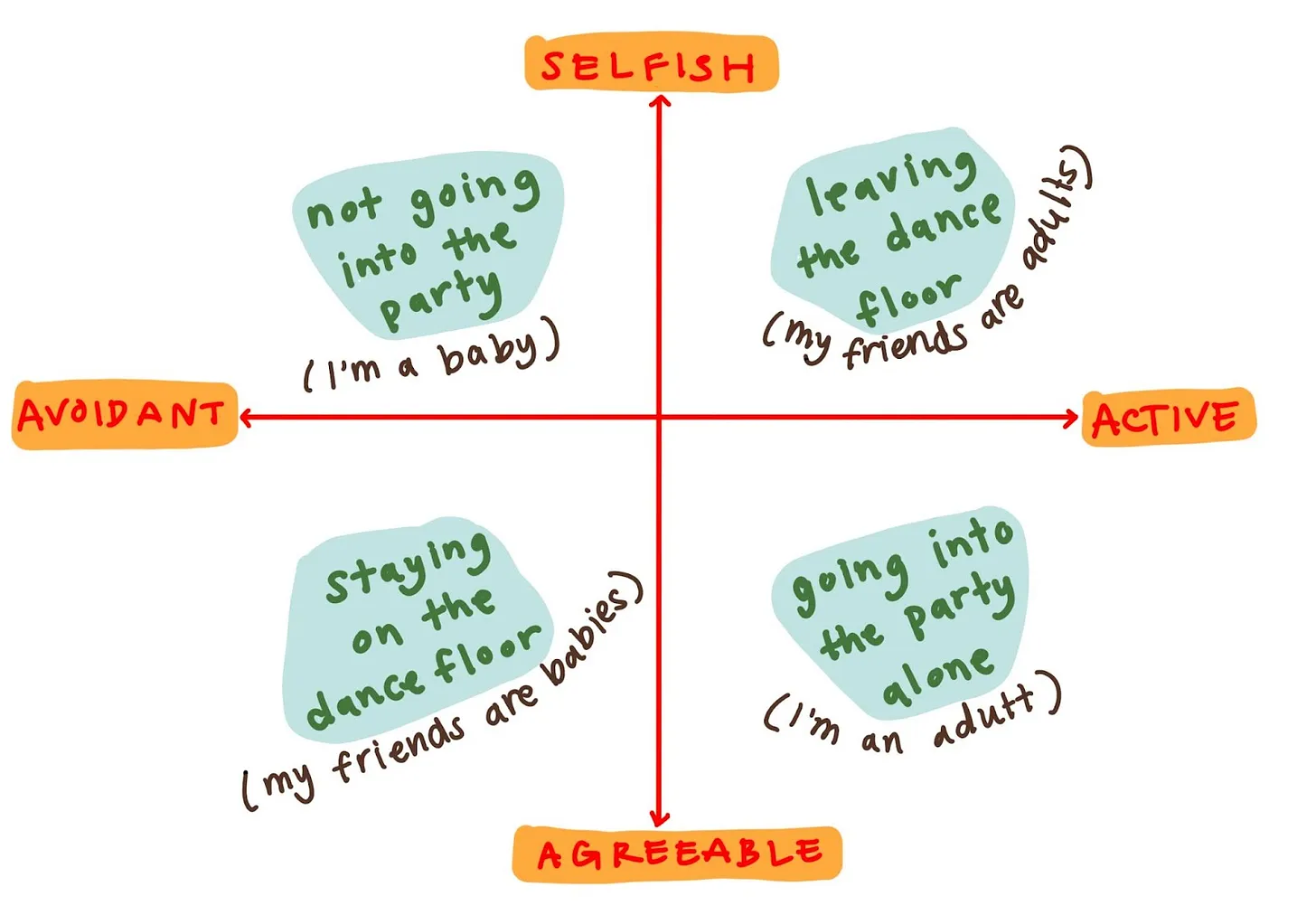Consumption Week 4
My notes from some of the media I consumed this week.
Contents
Now grouped by topic. Note not everything fits perfectly. Also noting my comments directly.
Energy & Climate
Exposed: The smear tactics against wind and solar
- So much dirty money trying to ruin the planet with lies. It’s sad. But we’ll win.
Disguising solar panels as ancient Roman tiles in Pompeii
https://techxplore.com/news/2022-12-disguising-solar-panels-ancient-roman.html
- The traditional PV tiles are made from a polymer compound, which allows the sun’s rays to filter through. The photovoltaic cells are then integrated into it by hand and covered with a layer of the polymer compound. “We can also give it the look of stone, wood, concrete, and brick. As a result, such a solution can be installed not only on roofs but also on walls and floors,”
Say Hello To The Floating Farm In Rotterdam
https://cleantechnica.com/2023/01/20/say-hello-to-the-floating-farm-in-rotterdam/
- Today, the couple’s Floating Farm bobs in the harbor at Rotterdam, where it is home to 40 Maas-Rijn-Ijssel cows, who collectively produce some 200 gallons (757 liters) of milk a day.
- JG: I do feel a bit bad for the cows though - they need more space.
- Plans are in the works for a floating vegetable farm to move into the space next to the current Floating Farm. Permit applications are also out for similar structures in Dubai, Singapore, and the Dutch cities of Haarlem and Arnhem.
- Should a weather crisis arise, a waterborne farm isn’t necessarily stuck in place. An urban farm that serves city dwellers also reduces carbon emissions associated with food transportation. Furthermore, a farm that floats on water also helps to take a little pressure off the “global land squeeze,”
A new integrated cost-effective carbon capture and conversion system
https://www.youtube.com/watch?v=MOi7Bfw9rrs
- The system takes flue gas from power plants, and strips out CO2 using a patented PNNL-developed solvent. The solvent then carries the captured CO2 to a reactor, where it is converted into methanol, one of the most widely produced industrial chemicals on Earth. This continuous process skips multiple expensive steps to release, compress, and purify the CO2. By eliminating the need for two separate plants, and shipping and piping the CO2, PNNL has significantly reduced the cost to make renewable methanol.
- Plant operators could sell the methanol to cover the cost of capturing and converting the CO2.
How A Brick & Rock Battery Is Changing Energy Storage
- Rondo: Heats bricks to 1500°C which can stay hot for hours/days and are used to create steam for industrial processes. Lifespan of 40 years. Claims of 50-90% reduced emissions and 30%+ reduced costs.
- Brenmiller: 100-500°C, crushed rocks instead of bricks.
- Not hot enough for steel (1600°C) or cement - yet.
[CleanTechies Podcast] #79 - Re-Engineering the World because the Future is Decarbonized w/ Matt Ward (4Ward.VC)
- Most technologies we will implement to get to Net Zero are already in existence, they’re just not being optimally utilised. You don’t have to be a genius engineer to help. It’s more important to apply existing technologies to new use cases, or find a new business model.
- Another way into CleanTech: learn business skills so the techy can co-found with you.
Innovating to net zero: An executive’s guide to climate technology
Automotive
thanks to a ‘crabwalk’ system, this hyundai IONIQ 5 can move sideways and rotate 180°
carsized
Personal Development, Health, and Fitness
How My Views on Learning Have Changed Over Time
https://www.scotthyoung.com/blog/2023/01/17/revised-views-learning/
- Reading this literature has made me more supportive of Direct Instruction for learning. DI is a teaching philosophy that involves breaking down complex skills into simple concepts and actions, teaching with ample examples and practice.
- While practice is good, examples are too! Watching other people perform a skill, especially with explanations for their decisions, is central to learning well. Similarly, while effortful practice is often necessary, not all effort is worthwhile. I now believe a lot of student struggles are wasteful—failures of instructors to provide thorough examples and explanations rather than a sign that deeper learning is taking place.
Are you a baby? A litmus test
https://haleynahman.substack.com/p/95-are-you-baby-a-litmus-test
- Context 1: Your friends were late for the party, so you could wait for them, or go in alone.
- Context 2: You want to leave the dancefloor, your friends want to stay. Staying because you think your friends will be upset is treating them as babies, and staying is passive/avoidant.
- JG: Not every situation can have each of the four options (it’s not like MECE), but the overarching concept of active vs passive/avoidant and selfish vs agreeable is an interesting one. Agreeable and/or active also often includes the uncomfortable options - so being an adult is doing the “right” thing, however uncomfortable.
New Research Reveals 9 Secrets That Will Make You An Expert Negotiator
https://bakadesuyo.com/2022/11/negotiator/
- Leverage: Preparation is vital. Leverage comes from knowing what they need. The person that is more comfortable with “no deal” usually has more leverage.
- Goals: Make them specific and aim high. Use recognized third-party sources or the other side’s previous deals. This will give you confidence and reduce fear.
- Negotiate Process: Make sure they have the authority to say yes. Establish that information exchange is not binding. “Nothing is agreed until everything is agreed.”
- Establish and Maintain Trust: If you tell me a drought is coming and my first instinct is to buy a canoe, I’m walking away. Lack of trust can kill even the best deals.
- Information Exchange: Listening = more leverage. You want them to tell you what they want and why they want it. Don’t go zero-sum; expand the pie and create value. What are low-cost ways to give the other side more things they want so you can justify more things you want? If you have any dealbreakers, you want to mention them early.
- Offers: If you don’t have good information, let them make the first offer. If you have good information, go first. Ask for the most you can justify (anchor high). Don’t be too reasonable at first — most people expect a back and forth.
- Concessions: Link them with “if…then.” Make sure they recognize you’re giving up something of value so they feel the need to reciprocate.
- When Things Break Down: Don’t make ultimatums if you don’t have to. Ignore their ultimatums. If it gets ugly, involve a third party. Say emotions, don’t show them.
- Closing And Commitment: You want them to feel happy. This creates follow through and better subsequent negotiations. Get it in writing/with a deposit to stop back-tracking.
[Huberman Lab] Jocko Willink: How to Become Resilient, Forge Your Identity & Lead Others
- You don’t need calories before exercise - adrenaline is more important. That’s why exercise creates energy.
- At first long cardio exercise is uncomfortable, but after a while the repetitive motion allows you to forget the motor movements (central pattern generators) and you can often feel as if you can go on forever. Stick out the first few minutes.
- How quick do you get back to emotional baseline and keep on focussed on the goal? Very important for leaders, and being able to help the team do the same. After a success, celebrate then move on. After a failure, commiserate then move on. Don’t let the future be too affected by the past.
- Candle analogy: The flame can be big (after a success) or small (after a failure) and the amount of fuel needs to be adjusted to keep it level and stop it burning out of control or going out. A success adds fuel, but be careful not to let it burn up too fast.
- If nothing is moving forward, try and step back and look strategically at the big picture. Even if it’s not your responsibility - perhaps everyone is else also too focussed/narrow-sighted and you’re the only one who realises someone needs to look at the big picture. This can be done physically: widen your field of view, step back (physically), take a breath. This also applies in arguments/conflicts.
What Does Fiber Do, And Do You Need More?
https://www.marksdailyapple.com/what-does-fiber-do/
- Insoluble fiber is a bulking agent, increasing the mass of the stool, which moves the stool more quickly through the intestines. I’m unconvinced that insoluble fiber has much to offer in terms of health benefits.
- Soluble fiber enhances the thickness of the stomach’s contents. This slows stomach emptying, which can give the body more time to absorb nutrients. More importantly, most types of soluble fiber are fermentable by gut microbes, which supports a healthy and diverse microbiome.
- A recent meta-analysis concluded that while increasing insoluble dietary fiber does increase the frequency of bowel movements, it does nothing for stool consistency, treatment success, laxative use, and painful defecation.
- The better way to increase your consumption of soluble, fermentable fiber is to eat plenty of vegetables, the more variety the better. You can throw in some legumes if they’re part of your repertoire (watch your total carb intake), but it’s not necessary. Top it off with some fermented dairy like full-fat kefir or yogurt.
9 Mental Distortions That Are Sabotaging Your Social Life
- You underestimate how much you’ll enjoy talking to a stranger.
- You underestimate how much new acquaintances like you.
- You underestimate how much people will care about intimate disclosures.
- You underestimate how much someone else will be thinking about you after conversing.
- You underestimate how willing people are to help you.
- You underestimate how hesitant someone will feel to ask you for help.
- You underestimate how much your appreciation will be appreciated.
- You underestimate the positive impact of giving a compliment.
- You underestimate how much someone will appreciate you checking in with them.
- JG: [Me] “Hi, stranger (1). I have a problem, and it’s a little sensitive (3); please can you help (5)? helps “Thank you so much (7)! You were really skillful (8)” later [Them] I really liked that guy (2)(3)(4)! I’d like to ask him a favour but I’m a little shy… (6). later [Me] “Thanks again for helping earlier (7)! How are you doing (9)? Can I help you with anything (6)?”
[What’s New With WIRED] Easily Distracted? You Need to Think Like a Medieval Monk
- Even medieval monks worried about being unable to focus well and being distracted - it’s not just a modern phenomenon.
- Sometimes life will get in your way. You don’t have total control, however hard you try. Don’t feel bad.
[Brave New Earth] E8: Ben Saunders, Polar Caps to Cap Tables: Record Breaking Polar Explorer turned Climate VC
- When you’re struggling/suffering, your thoughts are all “I”. Force yourself to support someone else - how can I help them? This reduces your own pain.
[My First Million] WHOOP Founder Will Ahmed: How I Built A $3.6 BILLION Company
- Aim for 50% deep/REM sleep (3+ hours)
- Shaan’s pinned tweet: “You don’t need to buy a sleep tracker. Great sleep is obvious.” He says (half-jokingly) “It’s not true, but it’s catchy and gets retweets and that’s what matters” → Don’t trust advice.
[Blinkist] Switchcraft by Elaine Fox
- Mental agility: practise positive reframing.
- Imagine viewing a problem/situation as if you were a different person to experience different emotions and ideas.
[Blinkist] The Power of Unwavering Focus by Dandapani
- Don’t multitask.
- Pick one daily task/ritual and practise focussing 100% on it to train controlling your attention/awareness. Similar to meditation.
Politics, Economics, and Business
A Two-Part Look at: 1. Principles for Navigating Big Debt Crises, and 2. How They Apply to What’s Happening Now
https://www.linkedin.com/pulse/two-part-look-1-principles-navigating-big-debt-crises-ray-dalio/
- Borrower-debtors ultimately require enough money and low enough interest rates for them to be able to borrow and service their debts.
- Lender-creditors require high enough interest rates and low enough default rates from the debtors in order for them to get adequate returns to lend and be creditors.
- This balancing act becomes progressively more difficult as the sizes of the debt assets and debt liabilities increase relative to the incomes.
- A “beautiful deleveraging” [1) restructure the debts so debt service payments are spread out over more time or disposed of (which is deflationary and depressing) and 2) have central banks print money and buy debt (which is inflationary and stimulating)] can be engineered by central governments and central banks to reduce debt burdens if the debt is in their own currencies.
- If you know where in the credit-debt cycle each country is and how the players are likely to behave, you should be able to navigate these cycles pretty well.
Why Is Denmark So Rich Despite Huge Taxes?
- Low income taxes, high consumption taxes, low corporation tax, no wealth tax → Encourages investment (and hence job and value creation).
- Relaxed employment laws and other bureaucracy → Cheaper to hire.
- Low corruption and honourable, accountable citizens → Utilitarianism works better.
[How I Built This with Guy Raz] Complexly: Hank and John Green
- Create, and put it out there.
- Many starters never know how hard it will be, and if they did, they might not have started.
- Make it a habit - do it daily.
[Editor’s Picks from The Economist] Editor’s Picks: January 23rd 2023
- Teens/20s are the highest users of buy-now-pay-later.
- People will pay more (~9%) more for climate-friendly alternatives, but are also more wasteful (fast fashion, same-hour delivery).
- Millenials/Gen Z have less wealth than previous generations and most don’t see home ownership or retirement as possible, so are more likely to buy luxury goods.
TikTok May Be A Chinese Superweapon
https://gurwinder.substack.com/p/tiktok-may-be-a-chinese-bio-weapon
- TikTok’s capacity to stupefy people, both acutely by encouraging idiotic behavior, and chronically by atrophying the brain, should prompt consideration of its potential use as a new kind of weapon, one that seeks to neutralize enemies not by inflicting pain and terror, but by inflicting pleasure.
- The US is a paradox composed of contradictions: its two primary values—freedom and equality—are mutually exclusive. It has many different cultures, and therefore no overall culture. And its market-driven society has given it economic riches but spiritual poverty. As he writes in the book, “American institutions, culture and values oppose the United States itself.”
- Western capitalism can be compared to a “paperclip maximizer,” a hypothetical AI programmed by a paperclip business to produce as many paperclips as possible, which leads it to begin recycling everything on earth into paperclips (i.e. commodities). When the programmers panic and try to switch it off, the AI turns them into paperclips, since being switched off would stop it fulfilling its goal of creating as many paperclips as possible. Thus, the blind application of short term goals leads to long term ruin.
- “Human flesh, sex, knowledge, politics, power, and law can all become the target of commodification. Commodification devours meaning and purpose, and to plug the expanding spiritual hole that this leaves, Americans turn to momentary pleasures—drugs, fast food, and amusements—driving the nation further into decadence and decay.”
- For Xi and the CCP, eliminating “decadent” TikTok-style content from China is a matter of survival, because such content is considered a herald of nihilism, a regression of humans back to beasts, a symptom of the West’s terminal illness that must be prevented from metastasizing to China.
- And this is why TikTok could prove such a devastating geopolitical weapon. Slowly but steadily it could turn the West’s youth—its future—into perpetually distracted dopamine junkies ill-equipped to maintain the civilization built by their ancestors.
- In a survey asking American and Chinese children what job they most wanted, the top answer among Chinese kids was “astronaut,” and the top answer among American kids was “influencer.”
[a16z Podcast] 2023 Big Ideas in Technology (Part 1)
- Reinvigorating the “third location” i.e. not home or work. Potentially linked to online community.
[How I Built This with Guy Raz] Tarte Cosmetics: Maureen Kelly
- Passionate about the industry.
- $20k+ start-up costs from savings and credit cards
- Ask everyone until someone says yes (maybe lie a little).
Science, Technology, and Nature
The Biogeography of the Oceans
- Kelp exists further north where the water has more nutrients that are easily absorbed. Coral exists nearer the equator where the water is more barren (hence why it is beautifully clear). Coral is an animal that eats, plus can photosynthesise through its friends. Seagrass exists where the others don’t.
The Stickiest Non-Sticky Substance
- Gecko feet are basically magic. As is this directional adhesive.
- 17g robot can pull 20kg! 6 can tow a car!!
23 BEST Things I saw in Vegas at CES 2023!
https://www.youtube.com/watch?v=fAJ1LCO4cV4
- My favourites: Lenovo Yogabook 9i (dual-screen); BMW colour-changing car (much more impressive than last year); Bug bite burner (if it works)
[More or Less: Behind the Stats] Coffee with the Chancellor, inflation measures, GP numbers and toilet paper
- “15% of deforestation is due to toilet paper” - Total lie. The source they claimed didn’t even use that figure. 15% is greater than all deforestation from wood pulp (i.e. from all paper products and more). I will never use Sirius toilet paper now.
[Modern Wisdom] #581 - Neil deGrasse Tyson - Understanding The Wonders Of Science
- It’s not good enough to be right, you’ve also got to be effective.
- Asteroid mining would turn the terrestrial mining industry on its head - but if gold etc. was cheap, given how amazing a material it is, humans would be able to create a whole bunch of new technologies currently financially unviable.





